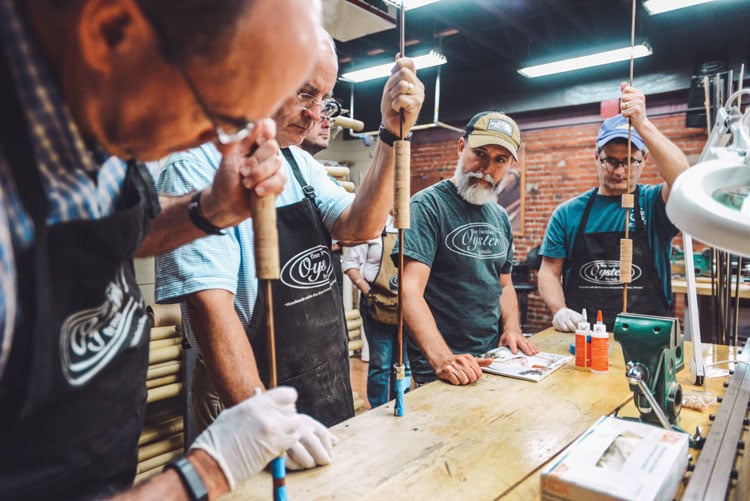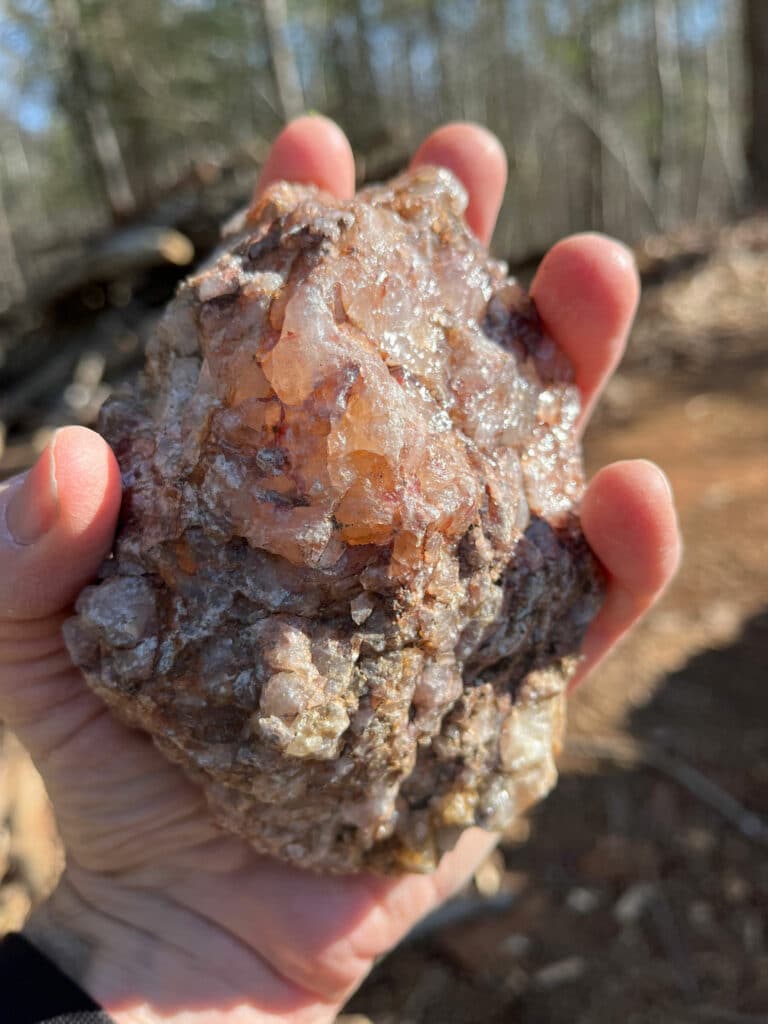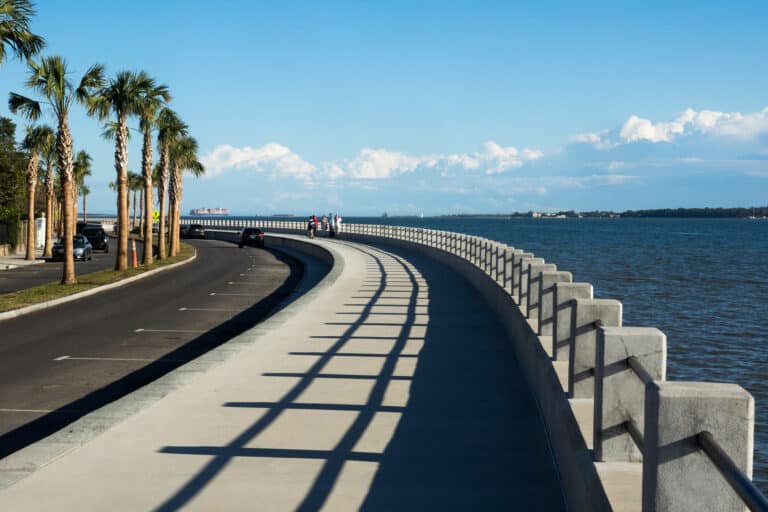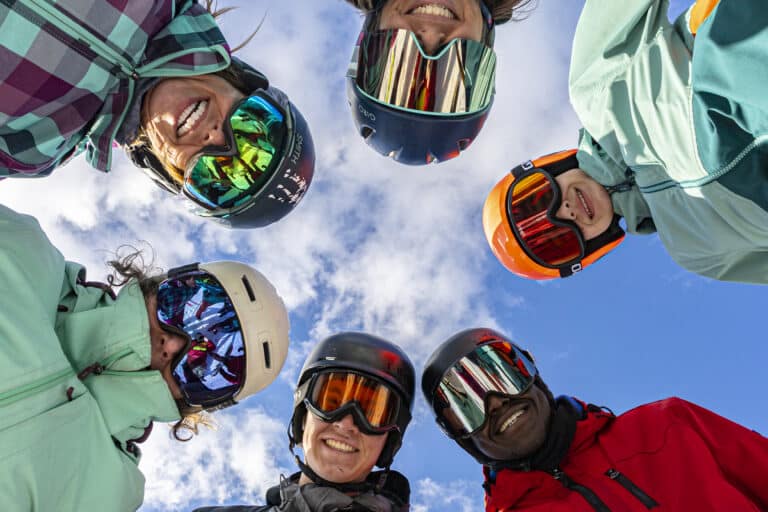Learn how to craft a fishing rod, build a bike, fashion a knife, weave baskets, and test your outdoor skills.
With a quick search online, you can find guides and classes for just about any outdoor activity. You can learn how to mountain bike, rock climb, roll a kayak, or fish for trout from masters of the sport.
But these instructors take it a step further, teaching you to how to construct the gear you need to get outside and start playing by hand.
Craft a Fishing Rod
There is a long and storied history of fly fishing in the Southeast, from the world class trout streams to saltwater and warm water destinations. It is here, in the heart of Blue Ridge, Georgia, where the Oysters set up their bamboo fly rod shop.
For more than 20 years, Bill Oyster has been crafting some of the finest fly fishing rods by hand. Anglers from all over the world, including former President Jimmy Carter, commission Oyster to make unique rods with his signature engravings. If he is the craftsman, then his partner Shannen Oyster is the driving force behind the business, handling all of the details that come with running and marketing a small business.
With his six-day bamboo fly rod making class, Oyster invites students to enter his world and craft a rod of their own.
“We have some people who are extremely experienced, we have people that have made some rods and want to learn how to make them better,” Oyster said. “And then we have people who literally have no interest in fly fishing, have never done it in their life. They are coming because of the traditional craft of it. They like the idea of making things.”
“I Thought maybe the only thing cooler than buying one would be if
i could make it myself.”
Growing up in Wyoming, Oyster remembers seeing fly anglers on the water, but it was not until he moved to the South that he really took an interest in fly fishing.
“At about 19 years old, I discovered the North Georgia Mountains,” Oyster said. “That’s where I was really intrigued by fly fishing again, those crystal-clear trout streams. I just fell in love with it. At the time, I was a professional bicycle racer and fly fishing was my noncompetitive, non-painful, just relaxing, enjoyable thing. I eventually had a bad crash on the road, and it took me out of racing. So, I put all of my passion, time, and energy into fly fishing.”
As a studio art major at the University of Georgia, Oyster was always into making things.
“I got intrigued by the idea of the bamboo rods because I love the classic, handmade things and the whole craftsmanship of it,” he said. “I thought maybe the only thing cooler than buying one would be if I could make it myself.”
At the time, there were no rod making classes and other masters of the craft refused to share their information with Oyster.
“I started playing with it, reading and research, trial and error, and studying the old ways that things were done,” he said. “Little by little, I started to figure it out.”
It is with that knowledge and understanding that Oyster approaches each class. Students go through the process of splitting a bamboo stalk, crafting the shaft, shaping the grip, and applying all of the hardware and varnish. At the end of the week, they leave with a fully functional and ready to use rod.
“Somebody could make a rod for high mountain Appalachian brook trout, so they’ll make a little bitty two weight or something like that,” Oyster said. “Then we’ll have guys come in and build a 12 weight that they’re catching 150-pound tarpon in the Florida Keys. From a functional standpoint, they get to make all of those decisions so they can handle any variety of fishing situations and make the rod to suit.”
Kathy Luker and her husband been have been fly fishing around the country for 25 years. After meeting the Oysters at an outdoor event, the Lukers decided to sign up for a class together.
“I loved it, my husband hated it,” Kathy Luker said. “If I could do it full time, I would.”
In March, Luker attended her fourteenth class, although she leaves her husband at home now. Over the years, she has kept some of the rods for herself but has gifted several of them to her children and close friends.
“I enjoy the physical work of making the rod from raw bamboo and you end up with the finished fly rod,” she said. “I’ve come to appreciate the bamboo itself, where the bamboo came from, and how through our skills, we are able to work with the bamboo and make it something very beautiful. When you take that piece of art out on a river, stream, or in the ocean and you use it, it brings life to that rod. It comes full circle.”
In the age of mass marketed goods, these rods stand out for their craftsmanship. “The bamboo rod is not as high tech or lightweight as the newer rods, but they’re much more durable,” Oyster said. “These rods are made to last your lifetime and then be passed on after that.”
Every student walks away with one of those rods and the knowledge that they shaped it with their own hands.
“We’ve never had a single student fail to complete the rod in the 20 years of classes,” Oyster said. “We have a running streak here that we don’t intend to break.”
Build a Bike
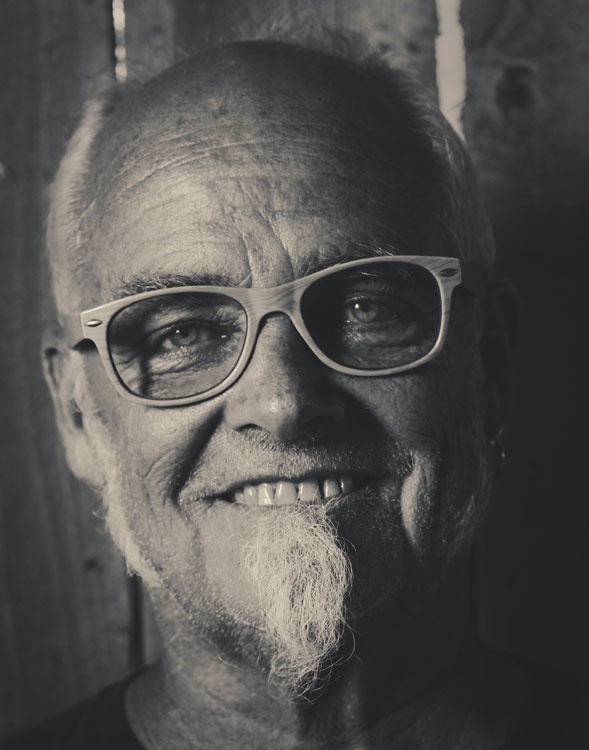
STEVE “BREWDUDE” GARN.
When Kathy Knapp signed up for Steve “Brewdude” Garn’s bicycle frame building class in 2011, she just thought it would be something fun to do that she could walk away with a bike from. She was into road cycling and was considering a coast to coast trip by bike.
“I wanted to build the touring bike,” Knapp said. “There were some things on the market that were close but not exactly what I wanted. So, I thought I’d build my own.”
Knapp left the class with more than a bike frame.
“I wasn’t always a bicycle mechanic,” she said. “When I went to Steve’s class, I was actually working in TV news. So, it’s been sort of a career switch since then.”
Working with Garn during his five-day frame class inspired the maker and bicycle enthusiast in Knapp. Within a year of completing the class, she had gone on to bicycle mechanic school and started working at a shop in Atlanta, Ga.
“Building a frame teaches you a lot about all the work I do with bicycles now,” Knapp said. “He gets into why you build a bike the way you do, why the geometry is the way it is for different bicycles for different purposes. While he’s explaining, you’re putting your hands on and you’re doing all of this.”
In 1974, Garn had to take six months off from motocross racing after a few too many injuries. During that time, he built a few BMX bikes for some kids in the area to support his racing.
But it wasn’t until he started Blue Ridge Electric and Welding in the 80s that Garn really got into the bicycle building business. He built a little bit of everything, including road, single speed, touring, and mountain bikes. At its peak, BREW was producing 250 frames a week with several professional cyclers racking up National Championships on his frames.
By 2006, most of the work had moved overseas. That’s when Garn started offering his frame building class. Within 10 days, the first round of classes was full.
“There’s a resurgence now in a lot of people wanting to work with their own hands and build their own stuff, especially when they are really young,” Garn said. “We’re starting to see almost like a revolt against technology in 18- to 22-year olds. They want to do everything by hand.”
Garn caps the classes, held at his shop in Creston, N.C., to two students so that he can spend more individual time with each person and the bicycle of their choosing.
He starts with the basics of TIG welding and bicycle design concepts before moving into the actual construction of the frame. At the end, students help him weld all of the pieces together and powdercoat their frames. It is then up to the student to finish putting the bicycle together with wheels, pedals, and handlebars.
“Every class is different because we have people from different backgrounds,” Garn said. “We’ll have people who have had metal fabrication work in their past. Next thing you know, we’ll get a young kid at 18 years old who has never had a drill in his hand. Some of them want to pursue it and do frame building afterwards at home. A lot of them just want to build their own custom bike.”
That is what John Myers thought going into the class.
“I’m going to take this class, build myself some bikes, that way I can do it for myself,” he said. “A couple of years later, it turned into a small little business for me. I’m definitely not going to be a millionaire but I’m building some really cool stuff and enjoying what I do for a living for a change, which is nice.”
In 2014, Myers opened Cin-City-Cycles, focusing on building mountain, trials, and BMX bikes.
“A lot of frame builders act like what they do is this magic thing that nobody else can do,” Myers said. “There’s this sort of mysticism about it. With him [Garn], it’s just the opposite. There’s nothing that somebody with a million dollars’ worth of machines can do that you can’t by scaling it down and doing it your way. I took so many notes during class that I’m still breaking out my book every now then, flipping back through, like man, I know he covered this somewhere.”
Six and a half years after having taken the frame class, Myers still bounces his ideas and questions off of Garn when he’s in a tough spot.
“He’s kind of the godfather of frame building when it comes to the bicycle business,” Myers said. “He did a lot of firsts as far as some of the materials he was using, the way he was welding things together. He really pushed the industry in the direction it’s going now.”
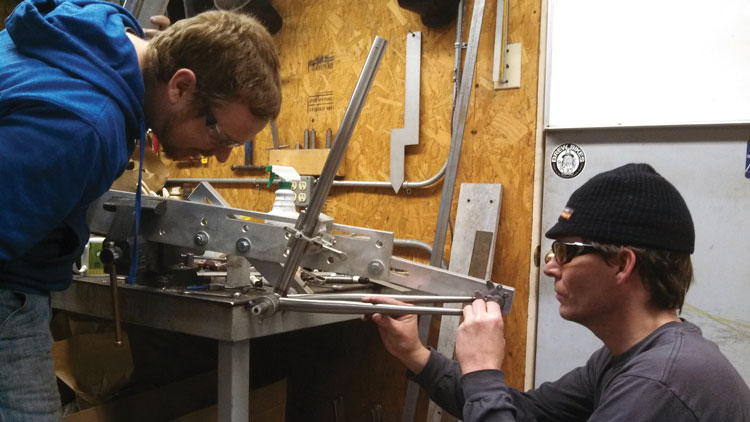
PARTICIPANTS ASSEMBLE A BIKE FRAME. / PHOTO BY STEVE GARN.
Fashion a Knife and Sheath
The origins of the Living Earth School go back to when Kate and Hub Knott met in college. After graduation, they went on a three-month paddling trip to British Columbia in kayaks they made themselves, fishing and gathering plants for food along the way.
In 2002, the Knotts opened the Living Earth School in Afton, Va., offering a wide variety of programming.
Hub Knott said the decision to open the school came from “our love for the wild and wanting to try to see what it was like to live off the land, but also the love of crafting and making things with our hands.”
They offer overnight summer camps, weekend classes during the school year, and homeschool programs for kids as well as weekend classes for adults. The programs cover a range of topics from wildlife tracking and identifying edible plants to wilderness philosophy and building a connection with nature.
Their Weekend Camps are a chance for families to come together and spend a few days learning a skill in the woods. Two of their more popular programs are the family knife making and family archery camps, available for anyone eight years and older.
“The real reason is just to create good experiences outdoors without a lot of media for families to have that common time together,” Knott said. “It’s not always easy to create that time and I think that sitting around a fire, laughing and telling stories, is something they remember forever.”
With the knife making and leather working camp, instructor Peter Yencken helps participants craft a stainless steel, fixed blade knife by hand with a leather sheath or bag for storage. After an initial demo of all the tools and supplies, each individual begins construction with some one on one instruction.
In the archery class, Yencken takes participants through the process of carving down a piece of wood into a long bow and making the string for the bow. Yencken also teaches how to make a quiver out of leather and shape arrows. Once the bow and arrows are complete, he goes over the instinctive shooting method so that everyone knows how to work their new tool.
All of the instruction and materials are included with both programs. Families should come ready to camp all weekend and prepare their own meals.
Test your Skills
Since 2002, the Mid Atlantic Primitive Skills Meet in Maryland has been a gathering place for people looking to learn a new skill and spend some time outside. Over the course of Memorial Day Weekend, participants can choose from over 100 workshops, including basic knife safety, primitive pottery, bee keeping, blacksmithing, and more.
The four-day event has something for the whole family. The youth programs introduce children, ages three through 11, to nature through stories, games, and practicing new skills while older children and adults participate in the workshops.
Heather Cornelius first attended the meetup with her daughter more than 12 years ago. Although other commitments and logistics prevented them from returning for several years, the whole family has attended the past four years.
“We mark it on the calendar six months in advance,” Cornelius said. “We hold that weekend because we all value it so much. One of the things we love about it is we can attend as a family.”
Over the years, Cornelius has taken several classes, including an earth pigment workshop where they made paints by grounding up different colored stones. During the weekend, her kids split their time taking workshops with friends and with their parents.
“It always refreshes our commitment to spending time in nature as a family,” Cornelius said. “It’s something that’s really important to us anyway but we always get a recharge and a reminder of why we value that time together and creating together. One of the big draws for me is it really feels like a pop-up community.”
Cornelius and her husband are now on the board for Ancestral Knowledge, the organization behind MAPS Meet, and her oldest daughter is an instructor.
Ancestral Knowledge offers similar programming throughout the year for kids and families, including homeschool programs and weekend classes. As a non-profit, they offer some financial assistance for families who cannot afford the summer camps or MAPS Meet through private donations.
Weave Baskets and Cordage
After a friend showed her how to make pine needle baskets, Nancy Basket moved to South Carolina to be able to collect the long leaf pine needles for her work and to be closer to the Cherokee people from whom she descends. For more than 30 years, she has been experimenting with different materials in her artwork.
“You have to do things inaccurately, things that don’t work the way you want them to, but you find out ways that they will work,” Basket said. “I concentrate on how to take one idea and turn it into something else.”
In addition to the pine needle baskets, she also makes cordage, mats, and bags from anything she can find outside, including cattail leaves and tree bark. Basket also taught herself how to make paper, cloth, and lamp shades with kudzu, an invasive plant commonly found in the Southeast.
“We need to learn how to use invasives,” she said. “When people think something isn’t worth anything, you have to look at it again. Weeds that you don’t like could be a natural resource too. It’s how you think about it and use it that makes a difference.”
Basket shares her knowledge and skills with the public through school presentations, artist residencies, and museum exhibits. She also teaches several classes every year through EarthSkills in South Carolina.
“If you take the glass, metal, and plastic out of your house, what do you have left? Not a whole lot,” Basket said. “Come out to a class in a field where you see what you would call weeds and then learn how to turn them into something that can support you in your life right now.”
These classes combine hands-on experience with the materials and storytelling to help participants better understand the connection with the natural world.
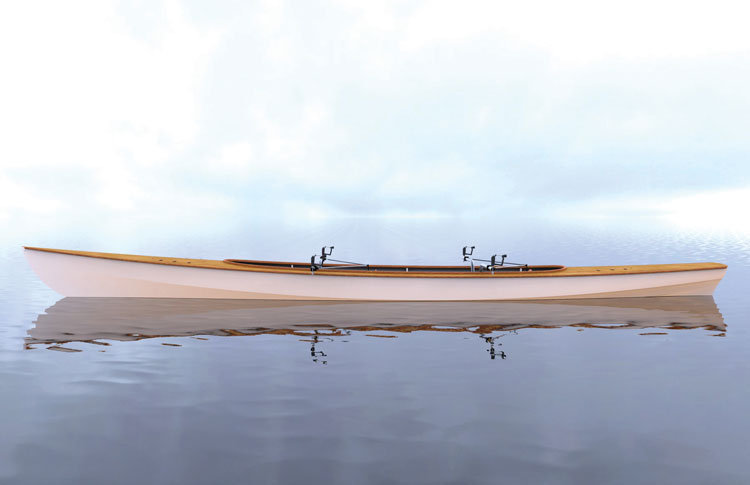
More Learning Opportunities
Thru Hiking and Trail Maintaining
The Appalachian Trail Conservancy offers a number of workshops throughout the year that focus on maintaining the wilderness of the A.T. For anyone considering a thru hike of the trail, the ATC hosts several free workshops in cities along the East Coast. The three-hour course covers the reality of thru hiking and the environmental impact on the trail. The ATC also partners with other trail clubs to offer trail maintenance workshops, covering important skills like drainage design, rock staircase construction, and crosscut saw training.
Boat Construction
Water enthusiasts should check out Chesapeake Light Craft for their boat building classes. Each class focuses on a different model, including kayaks, standup paddleboards, and dories. While most of the classes are held at their shop in Annapolis, Md., these boat builders also lead classes in California, Michigan, Maine, and Washington. They also sell boat kits, plans, supplies, and gear on their website, so you can assemble your own vessel at home.
Beginner Friendly
The programs at Outdoor Chattanooga are geared towards families and beginners to the outdoor recreation scene. Try everything from mountain biking and whitewater kayaking to bike commuting 101 in this outdoor Tennessee destination. For most of the programs, your first class is free, and equipment is provided so you don’t have to make the initial investment to see if you are interested in that activity.
Rock Climbing
Based in Fayetteville, W. Va., the Appalachian Mountain Guides lead rock climbing trips and clinics, including self-rescue courses and single pitch instructor courses in the New River Gorge and Red River Gorge. These guides also manufacture and sell locally made bolts, customizable for your climbing environment.
Conservation and Stewardship
The Nolichucky Outdoor Learning Institute is one of the newest additions to the outdoor scene in Northeast Tennessee. Discuss how to better protect wild places with conservationist and photographer David Ramsey or take part in the Leave No Trace trainer course. NOLI has dozens of other classes to choose from, including whitewater kayaking, wilderness first aid, outdoor art classes, and group team building.
Gear Repair and Maintenance
Although Clintonville Outfitters is located outside of the Blue Ridge in Columbus, Ohio, the shop offers a gear repair and maintenance class for backpackers and campers. Participants learn how to make repairs while on the trail and how to maintain their gear at home. The course covers tent pole replacement, stove repairs, torn backpack repairs, shoe and clothing repairs, and how to wash everything at the end of the season. Useful skills for anyone who has ever been caught out on the trail and run into a gear mishap.
